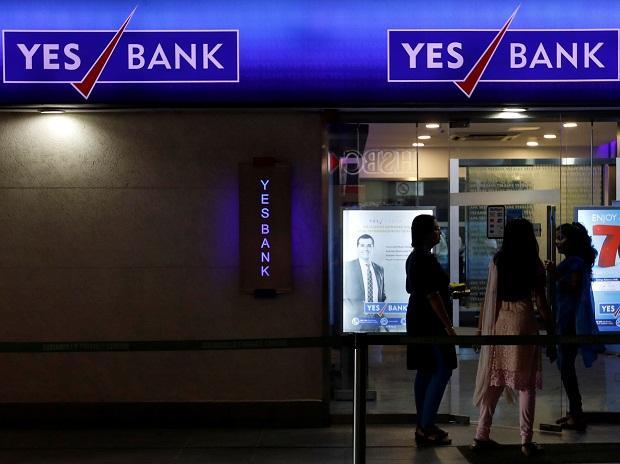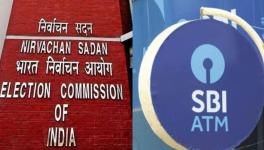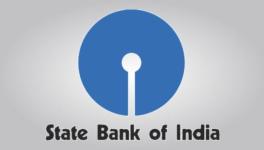What Are the Options for Yes Bank’s Revival?

Image Courtesy: Business Standard
The State Bank of India Chairman Rajnish Kumar’s recent comments on Yes Bank in Davos have sparked speculations that the government will step in to support the struggling private lender. While it is significant for the Yes Bank not to “fail”, experts caution about the dubious practices that triggered the prolonged crisis inside Yes Bank.
“Yes Bank is a significant player in the market with an almost $40 billion balance sheet. I have a feeling that it will not be allowed to fail,” Kumar told Bloomberg news in Davos on Wednesday. This is in contrast to the banker’s statement in December when he had said that the possibility of SBI doing something for Yes Bank was out of question.
For the last few months, cash-strapped Yes Bank has been struggling to raise funds for its revival, but to no avail. On January 10, the private lender had notified the stock exchanges that its board approved raising of funds up to Rs 10,000 crore, in several tranches through “Qualified Institutions Placement (QIP), Global Depository Receipts (GDRs), American Depository Receipts (ADRs), Foreign Currency Convertible Bonds (FCCBs), or any other methods on private placement basis”. The new target is significantly lower than its earlier plans of raising nearly Rs1.42 lakh crore as approved by the board last November.
While the bank has stated that it is considering accepting a bidding offer of nearly Rs 35,000 crore made by Citax Holdings and Citax Investment Group, the deal has turned into a controversy as the bank’s independent director and chairman of its audit committee, Uttam Prakash Agarwal, resigned on January 10, alleging that Managing Director and Chief Executive Officer Ravneet Gill had misled the board of directors about the offer.
In a letter to banking regulators, Agarwal alleged: “These are not mere allegations, but hard facts. The capital raising issue is going on for four months. They didn’t even do due diligence on Citax. Did they find if the investor has enough money to invest in the bank? Let us first examine the fit and proper criterion of the management itself.”
There will be several options for the government regarding the bailout for Yes Bank, says Thomas Franco, former general secretary of All India Bank Officers' Confederation (AIBOC). Speaking to NewsClick, Franco said: “SBI itself is struggling with bad loans and crisis in the banking sector too hard to consider to fund the Yes Bank. One option could be if the Reserve Bank of India could take over board of the bank for a brief period and work towards its revival.” He added that another option will be for other private lenders to come up with binding offers.
Meanwhile, on January 16, rating agency Moody’s investor service has placed Yes Bank’s long-term foreign currency issuer rating of B2 and long-term foreign and local currency bank deposit ratings of B2 under review.
Crisis at Yes Bank came to light in 2018 when the RBI had asked founder Rana Kapoor to step down as the chief executive officer, following a spat over breaches of confidentiality and regulatory guidelines revealed in their inspections. Kapoor was replaced by Ravneet Gill in January 2019. Subsequently, the banking regulator has also initiated enquiry into Yes Bank’s exposure towards Infrastructure Leasing & Financial Services, Dewan Housing Finance Corp Ltd (DHFL), Indiabulls Group, and Sudhir Valia-promoted entities Fortune Financial Services India Ltd and Suraksha ARC.
Furthermore, Yes Bank also has highest exposure to entities classified as high-risk such as Anil Dhirubhai Ambani Group (Finance), Cox & Kings, CG Power, DHFL, Essar Shipping and Mcleod Russel, which was reported as Rs 102.6 billion at the end of March 2019.
Reportedly, Yes Bank’s gross advances or outstanding loans and advances aggregated to Rs 2.32 lakh crore as on September 30 last year, compared to Rs 2.42 lakh crore as on June 30, 2019. Whereas, the bank’s deposits aggregated approximately Rs 2.09 lakh crore as on September 30, 2019.
Also watch: Shakespearean Tragedy at Yes Bank
Get the latest reports & analysis with people's perspective on Protests, movements & deep analytical videos, discussions of the current affairs in your Telegram app. Subscribe to NewsClick's Telegram channel & get Real-Time updates on stories, as they get published on our website.























